#FutureOfAssessment: Accessibility and Inclusion | Episode 2
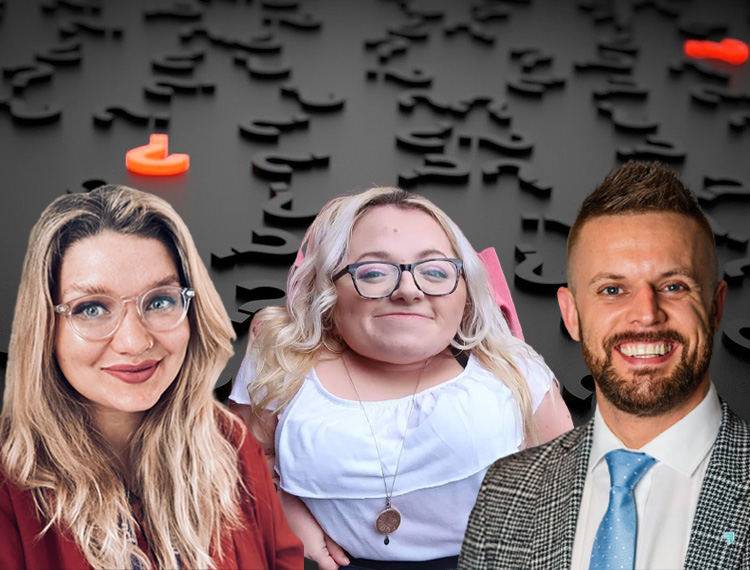
#FutureOfAssessment – Accessibility and Inclusion livestream Episode 2. This episode was hosted by Gavin O’Meara and Jessica Blakey (Assessment Design Manager, NCFE), we invited Gem Turner (award winning disabled lifestyle blogger) and Dan Howard (Director of Operations and head of EDI group, NCFE) to discuss the importance of accessibility and inclusion in assessment design and practice.
NCFE are adopting universal design principles in their assessment design work from the very beginning, considering representation, accepting the limitations of personal experience and committing to continuously learning and staying current with language and sources.
In order to achieve this, Jessica talks about the principles the Assessment Design Team are committing to in their everyday work and other ambitions for incorporating accessibility and inclusion throughout NCFE practices.
Transcript
Gavin
Hi, welcome to the latest episode of future reassessment. My name is Gavin O’Meara. I’m the CEO and founder of FE News. This is a co-produced live stream with our friends over at NCFEe. And this episode is Inclusivity and Assessment. My co host, today is Jessica Blakey. Jessica, would you like to join us? Jessica, how are you?
Jessica
I’m good, thanks. How you doing?
Gavin
Yeah, really, really good. And today’s a really, really cool episode that we’re going to be looking at inclusivity. And in assessment, basically, in looking at different dimensions around what that means what we’ve learned from pandemic moving forward and before and what we can move into into the future, and will be really cool to sort of explore is accessibility. Why is that a priority to us? You know, it’s a survey role, but it’d be quite cool to sort of understand what it means for you and ncfe, basically,
Jessica
Yep, sure. So inclusivity, and accessibility, kind of should weave its way throughout assessment, because accessibility is one element of our separate principles and assessment designer ncfe. So that’s alongside reliability for the team manageability. And so we engage as a team, we engage with current research, like quite a lot. And in our reading group, we discuss the organisation desks, work on future of assessment, which was kind of five principles, five targets for 2025. So around things like accessibility, but also things like authenticity, automation, security assessment, and we thought, well, we do a lot of that, well, we’re quite confident that we do quite a lot of that well, but the section accessible assessment highlighted that there was so much more we could do. So we can better to start looking at it and exploring it. And so for us accessible means it has to be designed throughout be usable by everyone, to the greatest possible extent. So that’s kind of everything from, you protect the characteristics, so people who have long term disability or short term injury or mental health challenges, but also going to kind of think about neurodiversity, other diverse, other kinds of aspects of diversity as well. We need to consider the universal design, especially in our work, because from the very beginning, we know that if you’re designing with certain challenges in mind, so for example, mental health issues are currently on the rise amongst young people in particular, there should be specific consideration when we think about the learners we’re designing for, and the challenges that they’ve had to face in their education. So far, obviously, at the minute we’ve started, and kind of there might be people doing our assessments who’ve been in full time education, and haven’t sat a formal assessment for perhaps four or five years. And if they’re if they’re of a certain age, so we know that representation matters. There’s a body of work emerged in education, research about kind of the importance of diversity in educational spaces, and not fully considering that, like in who we work with, and what we produce, will also kind of undermine the validity of what we’re trying to do. And so we need to look at multiple perspectives to achieve that kind of real life, occupation, authenticity and our assessments, thinking about everybody who might be looking at taking them and looking after what we do.
Gavin
Yeah, that’s really, really cool. I think. I’d like to bring in our two guests. So we’ve got Gem Turner, and Dan Howard. And this is a morning. Hello. What I’d like to do is sort of explore around the topic a little bit more, really, if we could on a fake gem. I don’t know if you could introduce yourself, and then maybe if we could go into how can we make assessment more inclusive?
Gem
Yeah, so I’m Gem Turner. I’m a disabled content creator, and consultant from West Yorkshire. And it’s such a big question, and it’s my jam. I whipped up talking about this, but I think how can we make it more accessible as a starter is understanding the word further on as just a buzzword because we hear that word all the time. And I think we use the same net but what do we actually mean and and justice cannot just talk stubbornness. But for me, as a wheelchair user, a lot of my barriers are physical. And but we don’t just mean physical, obviously. And when it comes to education, I think we need to be looking at people’s strengths rather than people’s limits and, and barriers, I think can be truly inclusive, we need to be looking at what would actually suit everybody, rather than, you know, sticking to the same old thing. Education has been the same for so long. And actually what would happen if we just stripped it all back and started again, and I think this project that myself and Jeff have been doing, we’ve really been looking at that and, and trying to just change it up, and not being afraid to do that. So yeah, that’s my initial thought. But we can we can go further into that later
Gavin
We can delve deeper into that, Dan how about you, if you could introduce, a lot of our audience know who you already done. But maybe, if you could also explain how we can make assessment more inclusive. So now you’ve been looking very, very thing for this as well?
Dan
Yeah, no problem. Thanks for having me. My name is Dan Howard, and I’m Operations Director at ncfe. And I’m also chair of our equality, diversity and inclusion committee. When it comes to education, I think it’s really important not to underestimate the power of education, and the life changing opportunities that it can give to anybody from anywhere and anytime in their life. And I think accessibility really, really comes into play there when when you think about the different spectrum of learner, or someone who’s undertaking education, you know, there could be a school leaver that might be at school, there could be someone going to college, there might be an adult learner, or there could be someone who’s trying to, you know, upskill, to return to the labour market. So you’ve got a real broad stretch spectrum of individual who’s accessing education in order to fulfil their own potential for not just the world of work, but in everyday life. And I think it’s really important that when you look at, you know, inclusivity, and you know, the definition of inclusivity, really, it’s around not excluding, and I think it’s around, you know, as an educational services charity, what we’re trying to do at ncfe, is make sure that we’re creating a fairer and more inclusive society, through the power of education, and making sure that the qualifications that we develop the wraparound support services, the learning materials, the methods of assessment aren’t leaving anybody behind.
Gavin
Yeah, that is great. And Gem, can we go a little bit deeper of what you’ve touched on a second ago? What do you see that the biggest barriers to be for, for people that are disabled when trying to access learning? And did the pandemic make any difference to how it’s been from the past two, how we sort of in this weird in between space where we go to the future?
Gem
Yeah, definitely. So in terms of barriers, I think it’s the really subtle things that people don’t think about. So for me, I’m really passionate about language. And when it comes to education, and you know, it’s things like looking at questions, and seeing a word that may be is not the right, it’s not the right phrase, but in that in that moment, when you are in an exam, you’ve got to still carry on, and do the best you can. So language is really important to not, not just get it, right. But any, right, because it impacts some lodges, you know, education, grades, and feelings as well. And I actually, I’ve done a video as part of antifreeze projects. And one of the questions I asked the participants was, have you ever been in a situation where you’ve had an exam and it’s triggered certain feelings? And somebody actually, you could see them in the sea? Because they’ve been in that situation? Where the thread of question in the fall, but that’s a bit, you know, that doesn’t sound quite right. And so what happens, and I think we have to acknowledge that, you know, we see education as everybody’s everybody’s an expert, and we’re not, you know, and as soon as we start saying,that we can make things better. So that’s a barrier to me is, is acknowledging that we don’t get it right. And what was the second part of that question? Again,
Gavin
With the pandemic have things improved. Sorry. So have things improved basically between the pandemic, the way it’s been sort of engaging and opened up access for you.
Gem
Yeah. So I’ve heard a lot of really good things in terms, obviously, the pandemic has been horrific for the whole world. But I think in terms of accessibility and being online, and a lot of people have been able to have a lot more control of how they learn, and they can do it in their own time, which is a massive benefit for, especially with disabled people, you know, managing their energy, including myself, you know, I’m self employed, and I’ve been able to set meetings, whatever is comfortable for me. And it’s little changes like that, where once we start accepting that flexibility is a thing. You know, who knew we could we could navigate live to zero? ohms? And, yeah, well, I’ve heard feedback from other disabled people that, that now they can focus on their education rather than, you know, the barriers that they experience. So, in fact, one wheelchair user said, it actually was a complete different experience, because no one saw a wheelchair. So no one treated any different life. And that was a complete new experience. So it’s interesting. Yeah,
Gavin
Definitely, Jessica, what do you think we can sort of learn from the pandemic? Because you’ve obviously been sort of looking at this for a while? And what, what can we say as a way of sort of taking those lessons and moving forward with with positives, really?
Jessica
Yeah, so one thing I think that about leaving everything online, is that there’s been a lot of resistance to that in the education community today. And what we’ve proven that we can do it, and not only can we do it, we do it well. So looking at things like innovative methods for assessment, and how do people access and learning resources, group vote for each other? So if you’re somebody who struggles with face to face wants to work remotely? Well, you can and why aren’t we like building that into what we do, which I think is a significant thing that that we need to be considering. And I also think, like Jenna said that there that there’s a certain amount of things that we can take from the pandemic, that just because we’re going back to normal now, I’m back to normal, and we shouldn’t discount. There’s lots that have come out that that we should that we should seek to maintain. And that is the kind of the flexibility of access and thinking about as well. Who is accessing and when thinking about the technologies that we’re using, and who’s got access to them at different points. So all the different facets really, I think that’s a bigger piece of work took me into a assessment, but it is something that assessment design are looking at going forward, like what makes good the assessment? Should it be the same as what’s on the paper? Should it be different on the screen? And how are people using that? Are we building insufficient breaks sufficient support? All that kind of thing?
Gavin
Yeah. Can we talk about some of the things which are sort of, like the physical elements, which can be a barrier to assessment, some of the things that are not physical, but sometimes a little bit hidden? Or people haven’t thought around? Like funny if you haven’t, because a lot of this sort of stuff is people just haven’t thought this through fully, you know, it’s not sort of intentional, but how can we then sort of learn and move forward with this to develop solutions? Do you know what I mean?
Dan
Yeah, I think it goes beyond assessment as well. Gavin, I think if you just think about the whole educational journey and landscape, it’s not just, you know, the assessment methods along that learner journey, it’s, it’s how you access teaching and learning. And, and, you know, the access to, you know, high quality education. And it just go beyond the physical and you know, I have a hidden disability. And not many people know that, because it’s hidden, I choose to tell people, sometimes that’s sometimes done. And so if you think about, you know, an accessibility to technology, and I think linking back to that the pandemic slightly, whilst we really kind of made headway and progress in the world of education, in terms of different methods of teaching, and homeschooling, and everyone getting online, etc. But that did really highlight the digital poverty gap. And if you think about digital poverty, and the socio economic barriers that people face, now, that’s not a protected characteristic, but it is something that really does impact on inclusivity and access ability to education. So you have to go beyond, you know, the protected characteristics within the Equality Act to really truly be inclusive and accessible. And I think, you know, to, to Jesse’s point earlier around being authentic are one of our pillars in our assessment, design and creative practices on developing assessment methodologies. So haven’t get loads of pop And then we’re going to be annoying. I think I’ve got a reminder of something in 15 minutes. So if you think about the assessment principles and you know, just mentioned being authentic, but how can we be authentic if we’re not thinking about inclusivity and accessibility, you know that, that doesn’t stand true to our core values as an educational services organisation. And I think, you know, being able to adapt technology, so you can cater for very different needs, you know, some of the work we’re doing with neuro diverse learners in Manchester, for example, is around making sure that we’re, we’re helping to create opportunities for learners who recognise themselves as being neurodiverse into apprenticeships. So there’s various different things that you can get involved in around widening participation. But what I think is really important and what some people probably misjudge is equal access to opportunity doesn’t necessarily mean you should forget individuality. Because Yeah, there’s a real blurred line there where you think about, oh, I need to be equal, I need to treat everybody the same. Well, you don’t, because difference shouldn’t be something that dividers and something that should be celebrated. So you need to be mindful of treating someone as an individual, as well as being inclusive and treating them with accessibility.
Jessica
A little bit. So when we’re talking about exactly that, so thinking about things like socioeconomic status, so you have any kind of physical barriers to accessible education, and also the systemic ones. We know that different people from different racial backgrounds, and different cultural backgrounds access education differently, and the way that we interact with our qualifications is different. So part of what we’ve done is writing a new framework to be using our assessment, design and production, which considers all facets of identity and where they intersect. And so thinking about providing our writers and reviewers the guide to correct language and representation, but also things like committing to increasing the incidences of neutral and positive appearances of disability and diversity. So, for example, as well as considering house, a wheelchair user accesses the assessment physically and, you know, are we building in the right structures to support that, and making sure that if we have an opportunity to write a case study, can we have a wheelchair user neutrally represented not in kind of a, let’s discuss how somebody with a wheelchair user might go on the stage in a performing arts qualification. But for example, showing a video of a wheelchair user as, as a video to be discussed, without making that the whole focus. So that neutral and positive representation, so important to make sure that people can see that the qualifications are for everyone. And that there’s there’s no barriers or taken qualifications just because of an aspect of your identity.
Dan
You’re right, just there’s so much you can do through people’s lived experiences. And I think it’s about it’s about how you positively use people’s lived experience, to promote advance, you know, what we do as an organisation, but the education system as a whole, in terms of, you know, making sure everyone has got equal access to opportunity, and we’re using people’s lived experiences, to tell those positive stories that anybody and everybody can do it, and should have the right to do it.
Gavin
Yeah. Yeah. I think what’s really interesting is we’re covering like, a massive, massive load of ground here. So we’re talking everything from like, physical barriers of entry. I mean, Jen, you’ve experienced with things we’ve talked before, like the show around what your did you want to share the the earrings, your experience with the driving test that you completed? So I think that’s quite interesting as for and I’ve never thought this before. And I think it’s sort of, I think a lot of this today, I’m hoping will be on it before that before and then it can sort of instil positive change. I mean, basically, could you share that Gem? I thought it was it really touched me, what what you said.
Gem
Let’s do a little little cough. And so this is an example of, you know, I know it sounds again, both wordy but systematic ableism. Which, for anyone who hasn’t heard that before, basically, discriminatory attitudes towards disabled people in terms of how the system is built. And I recently passed my theory test. Whoop, and when I was revising, obviously, we all just try and power through with eyes as much as you can. And I came across a question that said, if you see a disabled car parking spot, what should you do and the the multichoice says what a park in it be? Go somewhere else. See, it was something like, yeah, hopping but don’t be too long. And obviously, as a disabled person myself, I wanted support, though in the disabled Park parking spot because I’m disabled. And that’s what I do. And I bought I went, I clicked the answer, I got it wrong. And the actual real enclosed answer was go somewhere else. And I think that’s a really shocking example of how somebody who has actually created the system has assumed that disabled people don’t drive, which is not only shocking, but it’s disappointing. And it impacted me emotionally as well, because it was a slap in the face Really? Well, that’s not professional se, but it was because I just thought, wow, someone who is in charge of my driving experience could have changed that for me, because of one question. And I think that’s that’s a really powerful example of why it’s not just a tick box experience, but it’s actually impacting people’s emotions, people’s life changes, you know, driving for me, have changed my life physically. But that one question could have meant that I didn’t pass so that’s why you know, I do this work because it’s about people’s lives. It’s not just, you know, when our examiner mounts it, so yeah, that’s my experience.
Gavin
Thank you for sharing it, do you know what I mean, because I, you know, it’s important for people to hear not just is completely cool. And I’ve completely understand because I think people have got emotion. And also it sort of can sketch out a massive part of your life and education. So how you experience education? And could that be assessment? Or could that be teacher going to be anything can actually really affect you for for longer term? And I think there’s some things which is unintentional, which people didn’t realise where it can have such a knock on effect. So one thing I’ve we’ve been skipping around it, but I want to sort of shine shine, a lot of it is other things which are unintentional, where, and I’d want to ask you about this in particular, like how the times could assessment and the LGBTQ plus community be affected? Because it’s unintentional things at times, but like, how can it also affect people with like, their emotions, like mental health around sort of different things around questions being asked in certain ways as well, when it’s, but then seeing who they are, you know,
Dan
I think, I mean, it goes beyond LGBTQ. Because it’s, it’s everything. But I would say, and I’ll use this, I’ll use my language very carefully here, because as a openly gay man, I’ve been lucky. But that’s the word that I want you to cling on to there because I’ve never come across any sort of homophobia or any barriers myself. when accessing education, or the world of work, you know, I’ve always worked for very inclusive organisations who just accept me as dumb. But I’ve been lucky and it isn’t, it’s sad that I’ve been lucky, is a phrase that I’ll use there because that isn’t everyone’s experience. And you have to understand that someone’s lived experience whether it’s just how they feel that’s reality to them. And it’s about the language I think that we use and and to the point again, I’ll raise from Jesse earlier around being authentic, because education should be for everybody. Regardless of whether you’re in the LGBTQ plus community, whether you’re physically disabled, whether you’ve got a mental health issue whether you’re neuro diverse, you know, you grew up in a council house and free school meals as a child you know, it’s it’s irrelevant. Everybody should have equal access to opportunity, which includes education and I think we need to be mindful of language and some of the newly completed forms and enrolling onto courses and things like that. And it’s about making sure that we are as open and transparent as possible. I remember recently I was doing my because I’m chair of governors for my what was my primary school and you have to renew your kind of your your police clearance check every so often. And I was filling out the form just to make sure that it was in date and the only options I had on the form was male or female now, you know, I am just done and I recognise is done, but for somebody out Else, they could take real offence to that because the only options on that form which was a physical paper form that I had to complete said gender, male or female, there was nothing else there now, that isn’t truly inclusive, because people will identify as whatever they want. And that’s fine, because it’s personal choice to them. But that’s just a real example of where we need to catch up. And I think some of the work we’re doing through our equality, diversity and inclusion committee here at ncfe is not just the things we want to do for our own people and the workforce of ncfe. But also our our customers, their learners, the ultimate beneficiaries of our charity, is to make sure that we’re making assessment methodologies more accessible, our learning resources, accessible anywhere, anytime, the tech we use to deploy our methods of assessment or our learning resources, you know, kind of comply to the the most accessible guidelines that we can, in terms of online web content. So it’s about just looking at it with a different lens. And I think, you know, language and looking at things through a different lens, and almost kind of doing that equality, impact assessment on some of the work that you’re doing is is really important so that you’re not marginalising or excluding anybody, regardless of whether they’re LGBTQ plus, or, or any of the other kind of categories that sit within the Equality Act, it’s, it’s just, it’s a given right, you should be doing it because it’s the right thing to do.
Gavin
100% 100%, we’re nearly done at time, I can’t believe that. They just disappeared in a blink of an eye. I’d like to ask everyone, one last question is, if you could have your way you could do anything. I have a magic wand sort of approach. What would you want to be able to do? What would be your dream? And what would be the big one, Jessica, for the future of assessment.
Jessica
So specifically around accessibility and love and the end to end process, it’s really boring. It’s a process question to say you kind of from the beginning, when we’re first envisioning who’s going to be taking this all the way through, how can we put in those kinds of supports and those and those variables to be able to support somebody with kind of profound and distinct needs, all the way through to still be able to achieve without them ever having to ask the question is this for me? Like, we really want to make this further learning from me, but we’ll get there. And this is the first step. So yeah, building that all the way through is something that we’re looking at.
Gavin
That’s great, Gem, If you can dream and dream big, what would you want to see for the future of assessment?
Gem
Yeah, I think for me, it’s controversial, but I would take people’s awkwardness and ego away. Because I think that is a massive barrier as to why we don’t do more of this work. Because we don’t want to get it wrong. But if we don’t start somewhere, then we’re just gonna stay in the same side. Excuse me, cycle. So I think, yeah, I would take away that, that, oh, I don’t know what starts, we’ll just Well, you know, people watching this, we take one thing away, you know, just start start thinking about what we need to be doing. And you know, that’s one step closer to get in a bit more inclusive and accessible. So, yeah, I would say that,
Gavin
That’s cool. If you had a one big dream about a future assessment, what would you want it to be?
Dan
I think if I had a magic wand, it would be that we don’t need to have conversations like this, or have meetings like this, because it’s just, it’s it’s part of everyday life. And I think, you know, the more to Gem’s point, you know, don’t be afraid to get it wrong, neither, you know, start have the conversation. You know, inclusivity is around, you know, not excluding anybody and giving everyone equal access, and start talking about it. Don’t be fearful of getting things wrong. And but my magic wand moment would be that actually, we don’t need to be having specific conversations around it, because we’ve done what we needed to do. And it’s just part of everyday life.
Gavin
That’s really cool. Thank you, everyone. I time this is just about gone. So thank you, audience for joining us today. This is part two of a series future of assessment and exploring all different elements around and then I’m sure you’re going to be back on again late, no doubt. The whole idea is to sort of shine different lights into different parts of the ecosystem to bring different people in and this Thank you, everyone who’s you’ve been a part of this day. This is totally co-produce. This is Jessica was so much a part of running this and bringing this all together. And Jessica, thank you, Gem. It’s been a pleasure to meet you and to join us today. Thank you so so much, Dan. It’s always a pleasure. And in the background for ncfe wouldn’t be right not to say thank you to Lindsay and Kim as well. We’ve really done I think and also, I said I’ll get it in today. And, from FE News side of things, and you know, thank you as well to Aliyah, who’s been running the show in the background, thank you so much. Kelly, you get well soon. And Finley, thank you so much for your work and support in the background as well. And see you very, very soon. We’ve got episode 3 coming up this time next week, which is going to be adaptations for 2021 2022 and beyond. And that’s going to be Tuesday 19th by Friday, so we’ll see you all really, really soon.
Dan
Thanks a lot. Take care



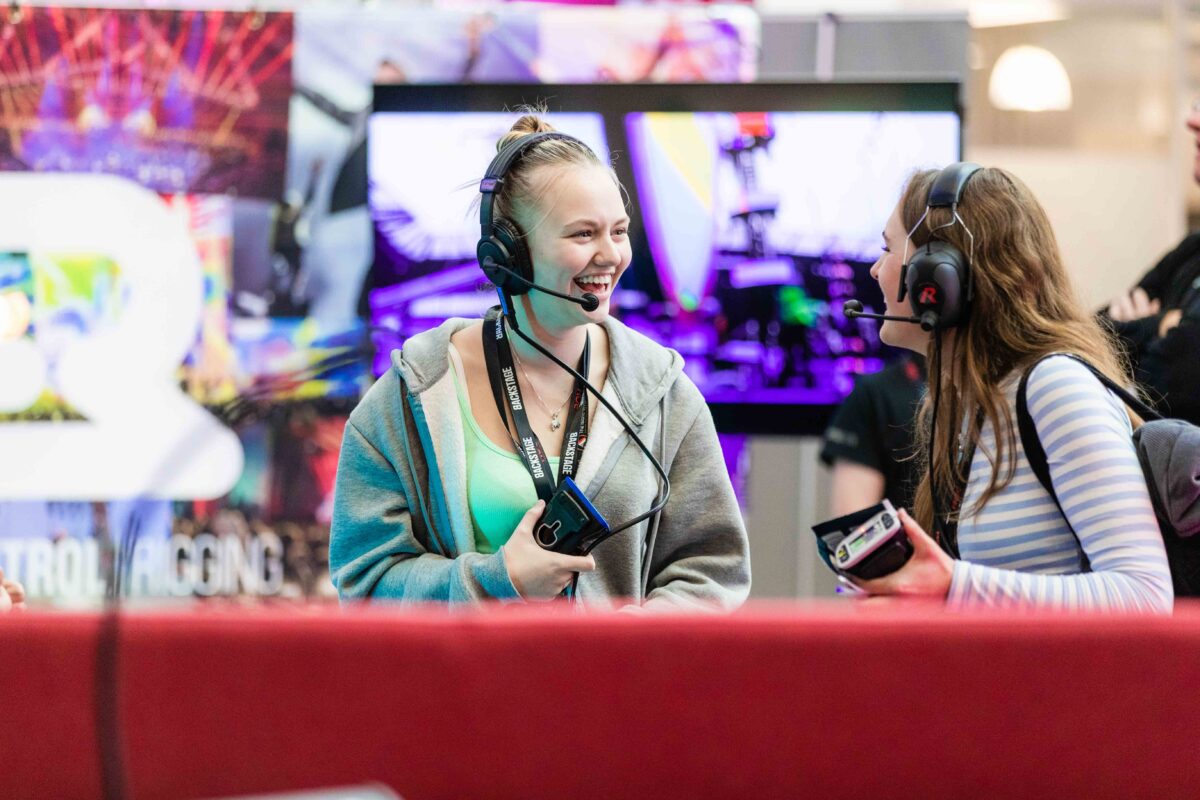
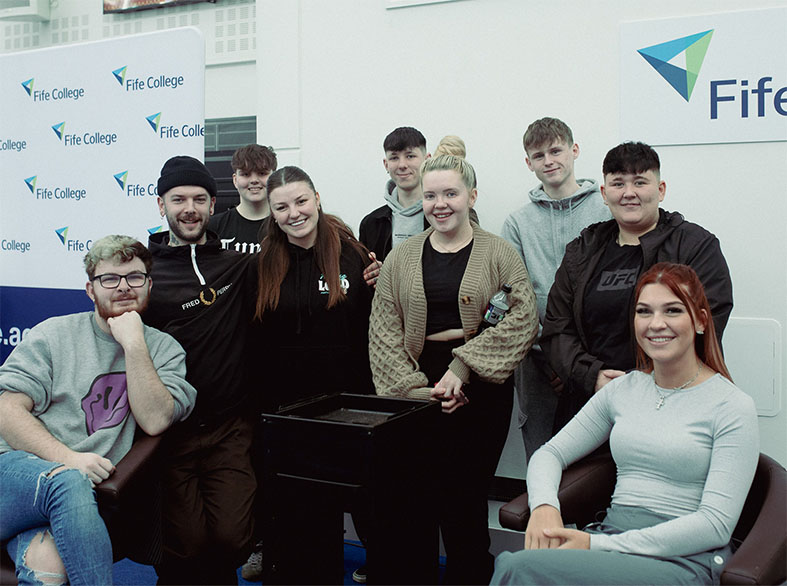
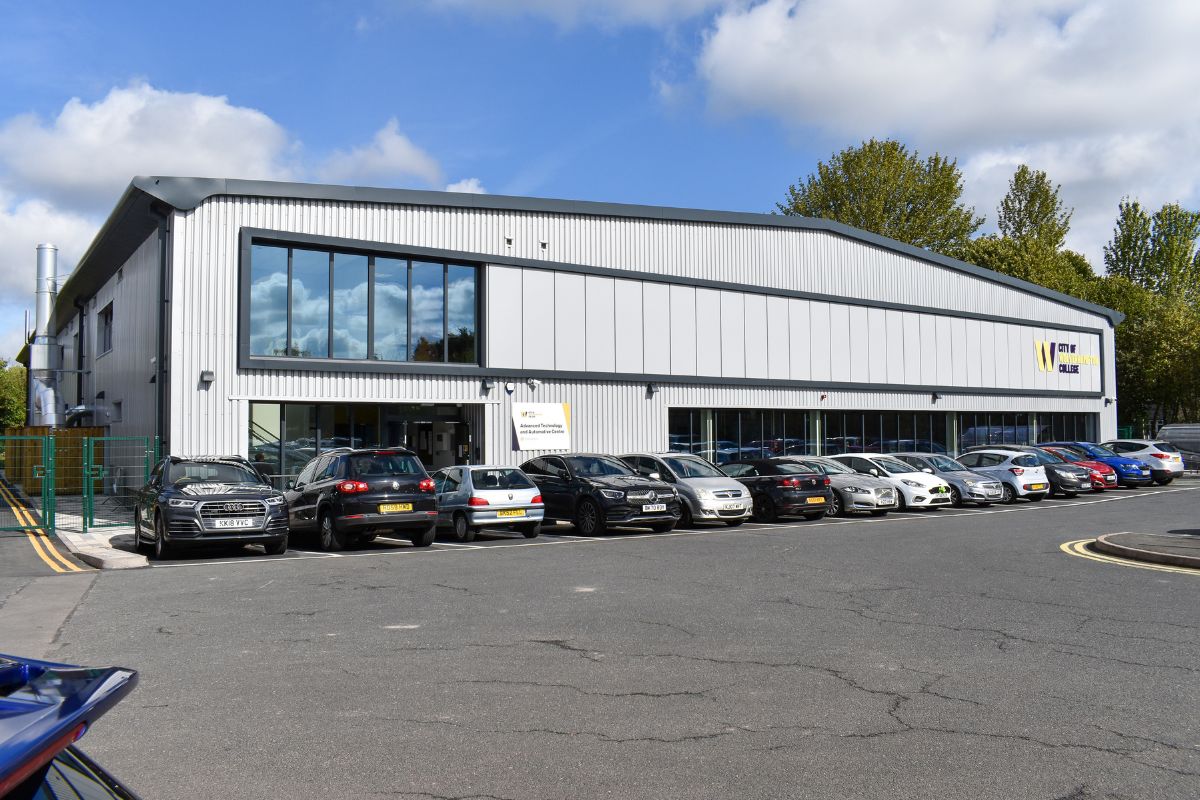

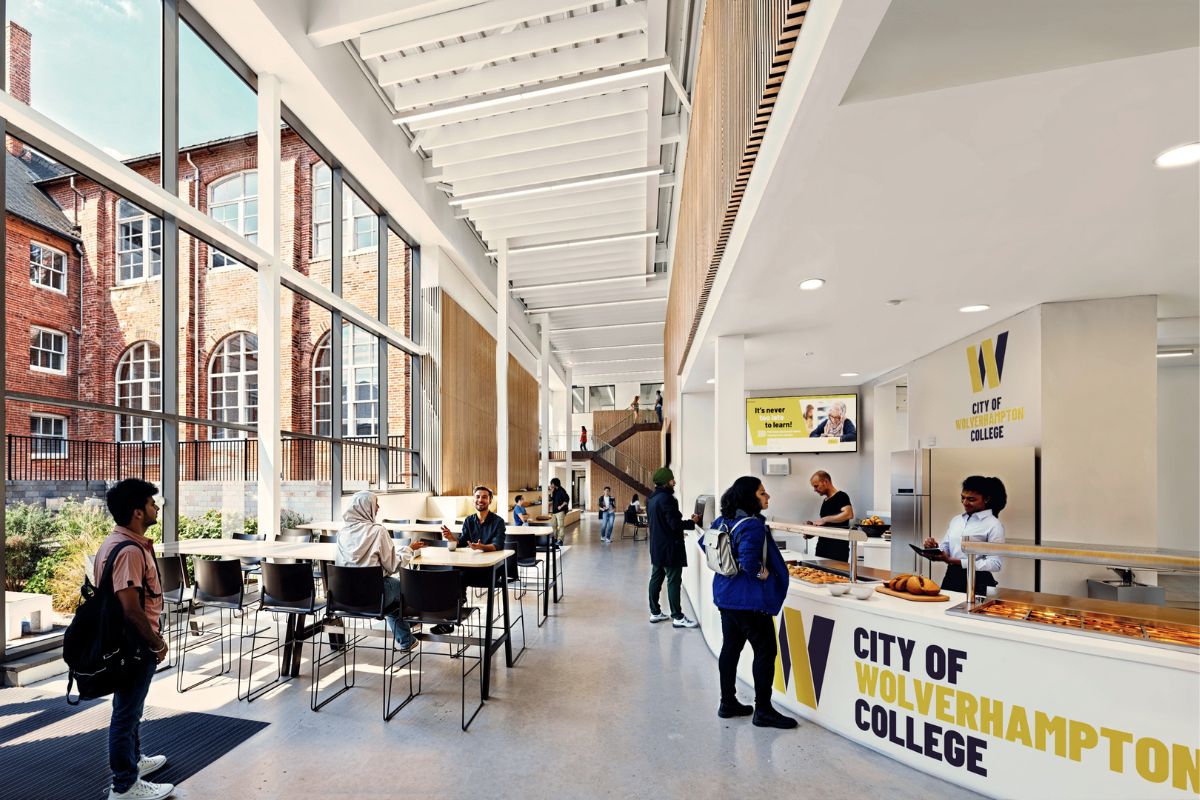


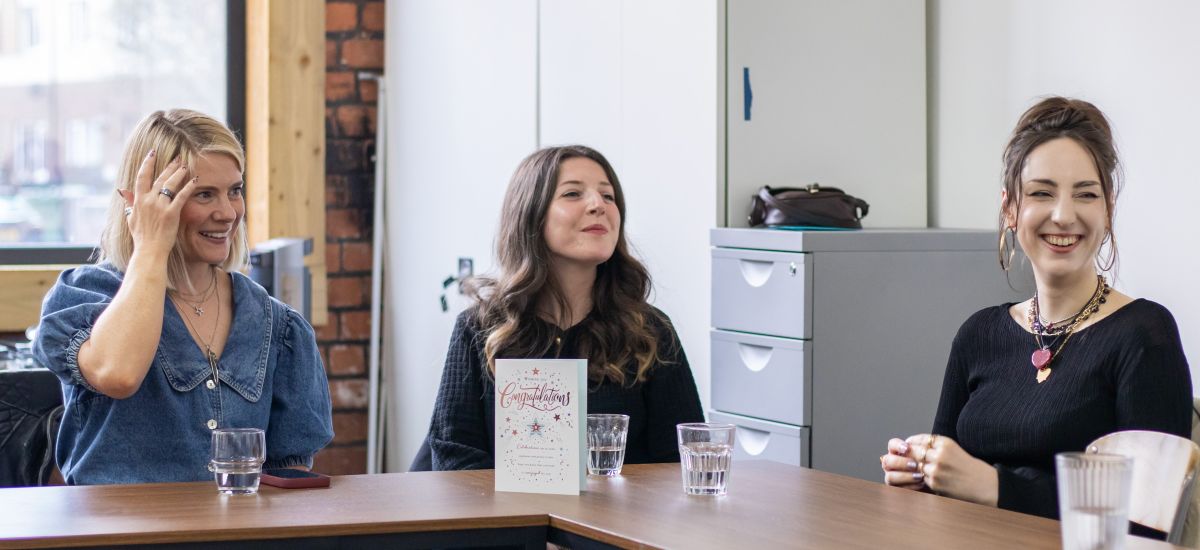
Responses